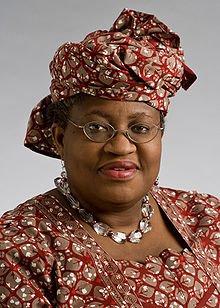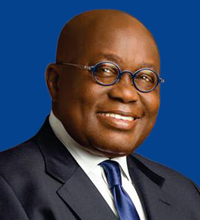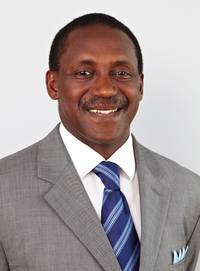On Sat, Dec 25, 2010 at 9:38 AM,
This material is distributed by Lanny J. Davis & Associates
LLC and DAVIS-BLOCK LLC on behalf of the Government of Cote
d'Ivoire. Additional information is available at the U.S.
Department of Justice.
*Ivory Coast Election Information*
*STATEMENT BY THE GOVERNMENT OF IVORY COAST*
*BASIC FACTS SURROUNDING THE CONTROVERSY OVER THE DECEMBER 28 ELECTIONS*
*DECEMBER 20, 2010*
*FOR RELEASE AS OF 1 PM EST / WASHINGTON D.C. TIME*
On December 3 the Ivory Coast’s Constitutional Council determined that Laurent Gbagbo was the winner of the November 28 election runoff, winning 51.45% of the vote to Alassane Ouattara's 48.55% (see Attachment A, pp. 8-9). The Constitutional Council is the supreme election judicial authority in the Ivory Coast according to the Ivory Coast Constitution, charged with "proclaim[ing] the definitive results of… presidential elections" (see Attachment B, Article 94). Its decisions are final and "not susceptible to any recourse" (see Attachment B, Article 98).
Previously on December 2, the head of the Independent Electoral Commission, Youssouf Bakayoko, announced on French TV from the opposition headquarters hotel that Mr. Ouattara had won the election. The Commission, where representatives from political parties opposed to Mr. Gbagbo and his Ivorian Popular Front (FPI) party dominate by a 20-2 margin by law and appointment (see Attachment C and Attachment D), is limited to overseeing election mechanics and publishing only provisional results “for which the final announcement of results is the exclusive competence of the Constitutional Council” (see Attachment E – Act No. 2004-642 amending Act No. 2001-634 – and also Attachment B, Article 32).
Mr. Bakayoko’s results – announced contrary to the express regulations governing the conduct of that Commission (see Attachment F) – were “certified” as definitive by the United Nations Secretary-General’s Special Representative Y.J. Choi. They have since been cited in an international rush to judgment, and in manner neglecting the Electoral Commission's constitutionally circumscribed role of determining only provisional election results and the Constitutional Council’s constitutionally supreme role in determining final election results.
The United Nations and other international actors have subsequently rushed to insist that Mr. Ouattara has legally ascended to the Presidency, despite Mr. Ouattara failing to adhere to the constitutionally mandated protocols governing presidential election proclamations, and failing to meet the required obligations governing inaugurations (See Attachment B, Article 39).
On the basis of the Constitutional Council’s decision, which cited election irregularities in 7 provinces (see Attachment A), the Ivory Coast government believes that Pres. Gbagbo is the constitutionally elected president, that the international community has rushed to judgment in declaring Mr. Ouattara the election winner, and that the evidence that lead the Constitutional Council to make its decision has not been fairly evaluated by the international community. Third party and news wire reports validate claims of irregularities, such as:
* Reuters reported that the European Union observer mission issued a statement accusing the Electoral Commission of
“unacceptable obstruction.” The statement also noted that “despite a number of requests addressed to the [Electoral
Commission], the EU mission continues to face significant obstacles accessing electoral operations” (see Attachment G).
* In those areas where the EU did have access, according to Radio France Internationale/Agence France Presse, UN observer
mission head Cristian Peda noted “irregularities, some obstacles on the day of the vote and serious tension.” (see
Attachment H) Additional Agence France Presse reports conveyed how “barriers were observed blocking people from voting...
including in Gbagbo’s hometown of Gagnoa,” and how “ballots were stolen” (see Attachment I).
* Observer reports from certain African civil society groups confirmed substantial irregularities.
The Observer Mission of the African Union noted “serious
infringement of physical integrity, intimidations, and
abduction attempts and damage to electoral material,”
including cases where Mr. Gbagbo’s representatives were
“unable to participate in any polling process” in an
entire district. The mission documented over 70 polling
stations where results were “signed either in the
absence of [Mr. Gbagbo’s] representatives, or by
themselves under… constraint,” concluded that the ballot
process in those locations “could not be held in the
transparent way which is essential for the honesty of
the ballot,” and noted that the events “constitute[d] an
important technicality” in the election. The mission
called for “careful assessment from the competent
institutions… to determinate their impact on the
ballots” (see Attachment J, esp pp i, 2, and 6, video at
http://is.gd/j38MC).
o A coalition of 21 non-governmental organizations under
the umbrella of the Coordination of the Observers from
the International Mission of the African Civil Society
(COMISCA), reported that “some active members and
representatives of the LMP Party were prevented from
voting freely, ballot boxes were carried by men in
uniform precisely in the Korhogo, Mankono, and Seguela
areas, [they] witnessed… manhandling of some persons
inside the polling stations, the ballot secrecy was
violated and instructions on how to vote were given by
some members of the polling stations, some corporal and
material damages were recorded as well.” COMISCA
ultimately concluded that the circumstances “strongly
called into question” “the democratic process” (see
Attachment K, video at http://is.gd/j37w3).
o CEPECA, The Organization of the emissaries for the
promotion of credible elections in Africa, “denounced
the violence and barbarous deed perpetuated on [Mr.
Gbagbo’s] representatives,” noting among other
irregularities that Mr. Gbagbo’s representatives were in
places prevented from voting and subject to verbal and
physical attacks, that ex-rebels took ballot boxes to
unknown places, that “there was stuffing of ballots on a
large scale” and “serious infringement of human rights,”
and that section agents gave orders favoring the
opposition (see Attachment L).
o An EU-funded domestic coalition of 134 civil society
groups under the umbrella of the Convention of Ivorian
Civil Society (CSCI), the largest civil society
coalition in the Ivory Coast, dispatched over 1,000
monitors to 38% of the polling stations. They noted late
and insufficient election material, violence and
intimidation at polling stations, destruction of ballots
and ballot boxes, multiple voting, barring of voters,
barring of monitors, and the insecure transfer of
ballots, including attacks on convoys (see Attachment M).
o The African Civil Society for Democracy and Electoral
Assistance, OSCADAE, concluded that “the credibility of
the polling was strongly called into question” in some
of the stations where, among other irregularities,
“candidate representatives, notably from [Mr. Gbagbo’s
party], were prevented from doing their duty” and
“physical attacks were recorded” (see Attachment N,
video athttp://is.gd/j38cU).
There were also eye-witness accounts and video-taped
interviews of individuals from the opposition-controlled
northern areas documenting violence, voter suppression, and
widespread fear, including the murder of a representative from
Mr. Gbagbo’s party and the rape and murder by Mr. Ouattara’s
supporters of a woman attempting to vote (see videos
athttp://is.gd/j39kq and http://is.gd/j39sN)
A turnout disparity between the Independent Electoral
Commission’s results and the Constitutional Council’s findings
reflects evidence of fraudulent ballot-stuffing, which was
also reported by eye-witnesses and observers, and as was cited
as evidence for the Constitutional Council’s decision to
declare Mr. Gbagbo the winner (see Attachment A, p. 4).
The ballot count recorded by the Electoral Commission and
later relied upon in testimony to the United Nations Security
Council by Secretary-General Special Representative to the
Ivory Coast Y.J. Choi (see Attachment O) estimated turnout of
81.1%. But this turnout estimate is more than 10% higher than
the Constitutional Council’s estimate of 71.28% (see
Attachment A, p. 7). The government points out that numerous
on-scene observers, such as the European-funded Convention of
Ivorian Civil Society (CSCI), estimated a turnout
approximating the Constitutional Council’s calculation (see
Attachment M, p. 7), a number reflecting the increase in
violence as compared to the first round of the election, when
turnout was 83.7% (see Attachment M, p. 7).
Attachments available upon request. PLEASE EMAIL
This email address is being protected from spambots. You need JavaScript enabled to view it. <mailto: This email address is being protected from spambots. You need JavaScript enabled to view it.>



